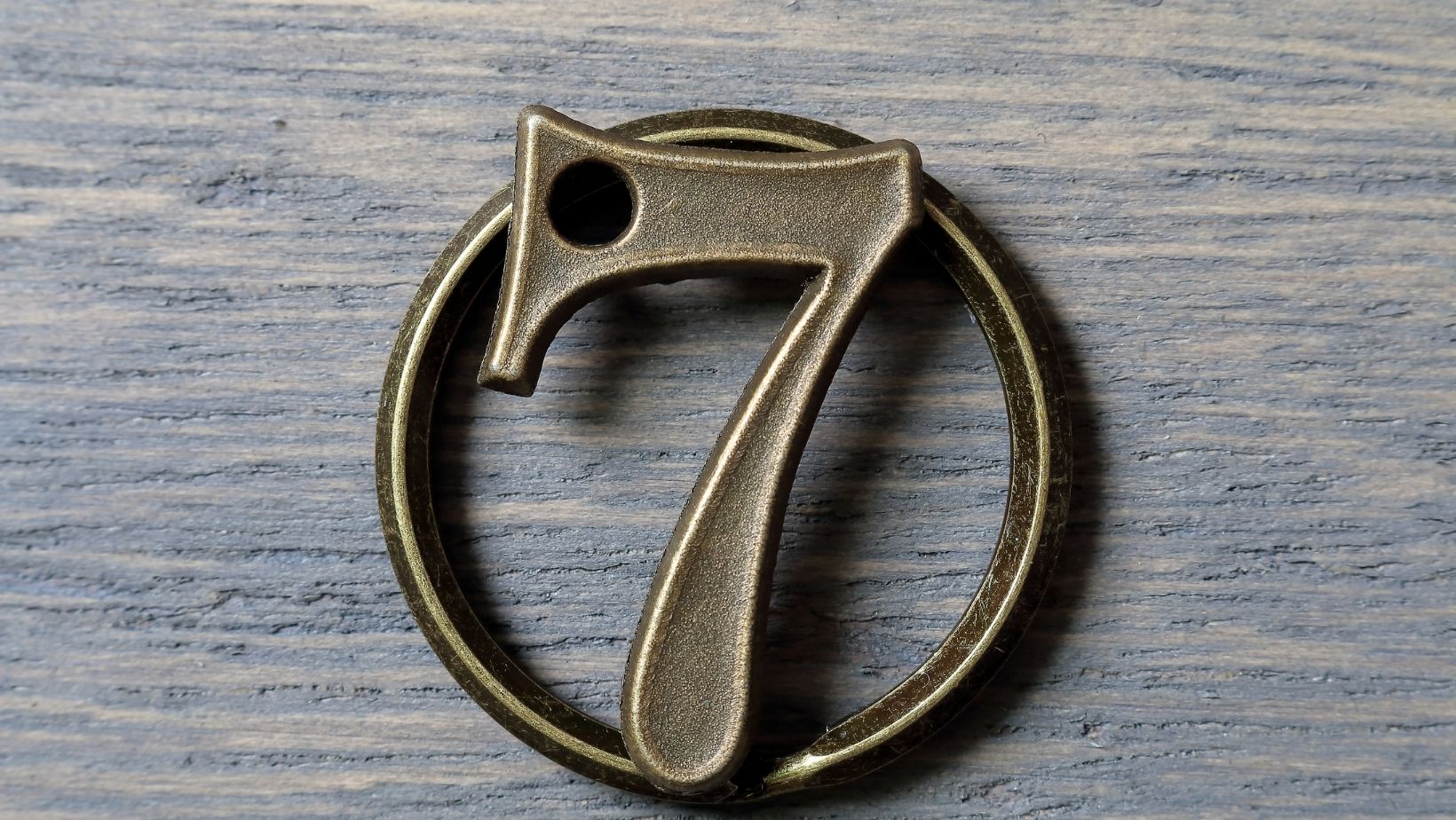
 In the realm of numbers, one digit stands out for its significance and symbolism – the number seven. Known for its mystical allure and cultural importance, seven has captured the imagination of many across various civilizations and belief systems. From the seven wonders of the ancient world to the seven colors of the rainbow, this number holds a unique place in human consciousness. Considered a number of perfection and completion, seven appears in religious texts, folklore, and even in everyday expressions. Its presence in numerology, astronomy, and even luck, showcases the diverse roles it plays in different aspects of life. Whether it’s the seven seas or the seven deadly sins, the number seven continues to intrigue and fascinate, making it a subject worth exploring further.
In the realm of numbers, one digit stands out for its significance and symbolism – the number seven. Known for its mystical allure and cultural importance, seven has captured the imagination of many across various civilizations and belief systems. From the seven wonders of the ancient world to the seven colors of the rainbow, this number holds a unique place in human consciousness. Considered a number of perfection and completion, seven appears in religious texts, folklore, and even in everyday expressions. Its presence in numerology, astronomy, and even luck, showcases the diverse roles it plays in different aspects of life. Whether it’s the seven seas or the seven deadly sins, the number seven continues to intrigue and fascinate, making it a subject worth exploring further.
Number:S3k90khjhma= Seven
 Exploring the deep-rooted significance of the number seven reveals its pervasive influence in various cultures and contexts. From ancient beliefs to modern interpretations, seven continues to hold a special place due to its symbolic meanings and associations across different domains. In numerology, the number seven stands out as a symbol of completeness and spirituality. Its mystical aura is evident in ancient texts and mythologies, where seven often represents perfection and divine intervention. The unexplained allure of seven transcends mere mathematics, captivating minds with its enigmatic properties.
Exploring the deep-rooted significance of the number seven reveals its pervasive influence in various cultures and contexts. From ancient beliefs to modern interpretations, seven continues to hold a special place due to its symbolic meanings and associations across different domains. In numerology, the number seven stands out as a symbol of completeness and spirituality. Its mystical aura is evident in ancient texts and mythologies, where seven often represents perfection and divine intervention. The unexplained allure of seven transcends mere mathematics, captivating minds with its enigmatic properties.
Cultural Reverence
Across civilizations, the number seven is revered for its magical connotations and auspicious nature. From the seven wonders of the world to the seven colors of the rainbow, this digit pervades cultural narratives, mythologies, and artistic expressions. Its presence in religious doctrines and folklore further solidifies its status as a symbol of significance and divine order.
Numerical Harmony
In the realm of mathematics and science, the allure of seven extends to its unique properties and mathematical significance. From prime numbers to geometric patterns, seven emerges as a recurring motif that embodies harmony and balance within numerical frameworks. Its role in various mathematical phenomena underscores its universal appeal and enduring relevance.
History and Significance
Seven holds a pivotal role in various cultural beliefs, often representing perfection and spiritual enlightenment across civilizations. In numerology, it symbolizes completeness and divine intervention, resonating with mystical connotations that transcend time and geography.
- Sevens in Judaism: In Jewish tradition, the seventh day, Shabbat, signifies rest and holiness, reflecting the divine completion of creation in Genesis.
- Sevens in Christianity: The number seven appears prominently in the Bible, symbolizing perfection and fulfillment, such as the seven days of creation and the seven sacraments.
- Sevens in Ancient Cultures: Ancient civilizations like the Babylonians and Greeks attributed mystical qualities to the number seven, associating it with harmony, cycles, and celestial bodies.
Mathematical Properties
 Exploring the mathematical properties of the number seven reveals its unique characteristics in various contexts. In the realm of prime numbers, seven stands out as a significant player. It’s crucial to note that seven is a prime number, as it is only divisible by itself and one. This property adds to the allure and mystique surrounding the number seven, making it stand out among its numerical counterparts. In geometric patterns, seven often plays a pivotal role. For example, the heptagon, a polygon with seven sides, showcases the symmetry and balance inherent in geometrical designs. The presence of seven-fold symmetry in nature, such as snowflakes or flower petals, further underscores the significance of this number in creating harmonious patterns.
Exploring the mathematical properties of the number seven reveals its unique characteristics in various contexts. In the realm of prime numbers, seven stands out as a significant player. It’s crucial to note that seven is a prime number, as it is only divisible by itself and one. This property adds to the allure and mystique surrounding the number seven, making it stand out among its numerical counterparts. In geometric patterns, seven often plays a pivotal role. For example, the heptagon, a polygon with seven sides, showcases the symmetry and balance inherent in geometrical designs. The presence of seven-fold symmetry in nature, such as snowflakes or flower petals, further underscores the significance of this number in creating harmonious patterns.
Moreover, the mathematical properties of seven extend beyond pure mathematics into various disciplines, including music theory and aesthetics. In music, the concept of heptatonic scales, consisting of seven tones, forms the basis of many musical compositions worldwide. This numerical symmetry in music contributes to the pleasing and balanced sounds that resonate with listeners. The mathematical properties of the number seven encompass its role as a prime number, its significance in geometric patterns, and its influence in various artistic and aesthetic domains. Understanding these mathematical facets adds depth to the mystical allure and cultural importance that the number seven holds across civilizations.